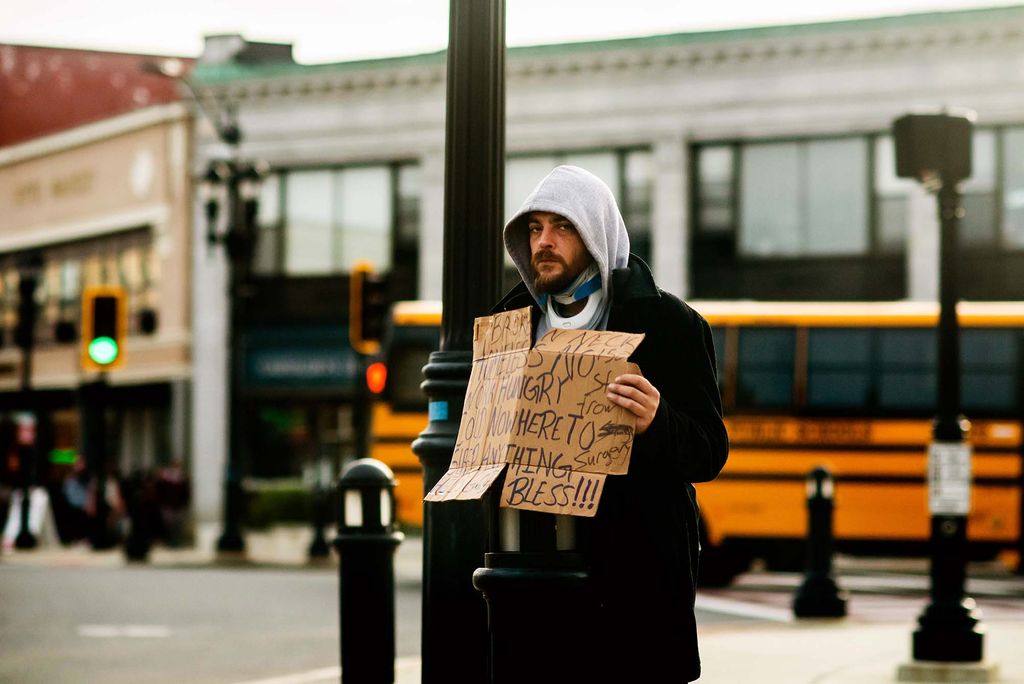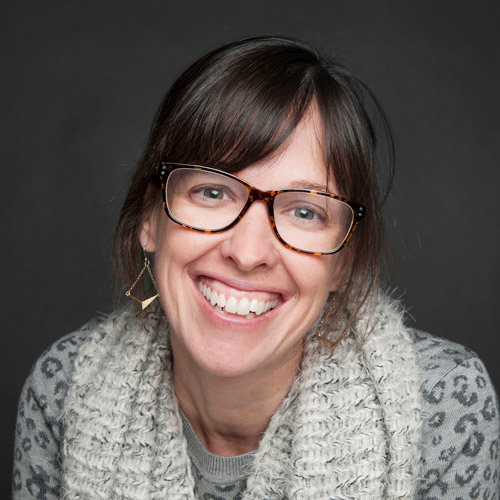A Hands-on Class on Homelessness

Sargent College students toured downtown Framingham, Mass., in November for research on the city’s homeless population.
A Hands-on Class on Homelessness
Sargent College students partner to help unhoused in Framingham through BU MetroBridge program
The streets of downtown Framingham, Mass., were the classroom on a hazy day last month for Kaytlin Eldred and 10 of her Sargent College of Health & Rehabilitation Sciences students. Guided by the city’s community development coordinator and the head of a local business association, the Cultural Humility, Racial Justice, and Health class taught by Eldred (SPH’17) looped past Brazilian restaurants, social service agencies, and a new, upscale apartment complex with rents that “I can’t even fathom,” one of the officials said.
Ariyana Aghazadeh-Bonab (CAS’24) fathomed for him, looking up the building on her cell phone. “Twenty-four hundred for one bedroom,” she announced. Aghazadeh-Bonab did some seat-of-the-pants math: for tenants to afford that and pay no more than one-third of their income for housing—the standard economists suggest for affordability—they’d have to clear “around $128,000 before taxes.”
Some residents here have trouble finding or keeping any housing. The class encountered no publicly visible tents or sleeping bags, but any of the five people idling in the small park that the BU group passed might be unhoused, according to the tour leaders. Eldred, a Sargent lecturer in health science, says that city data suggest 40 to 60 people downtown might be homeless at any given time.
“We want to see more affordable housing development,” said Anthony Lucivero, executive director of the business group Downtown Framingham, Inc., as he walked with the class. “The cost to develop housing in Massachusetts is high,” chimed in Planning and Community Development official Eliot Yaffa. “There [aren’t] a lot of affordable housing dollars out there to really create affordable housing.”

Eldred’s students weren’t strolling Framingham to run up their Fitbits. They were there to collect data before giving city officials recommendations for addressing homelessness through a partnership engineered by MetroBridge, a three-year-old program at the University’s Initiative on Cities that pairs appropriate BU classes with regional municipalities to study local public problems.
The students’ recommendations spanned multiple contributing factors to homelessness: mental health (they suggested behavioral counseling for people brought to police stations, keeping an updated list of those experiencing homelessness, and partnerships with local health centers), racial inequity (partnering with local businesses to provide summer jobs for teens), and substance abuse (enacting school programs for addiction, including speakers sharing stories of overdoses and recovery).
MetroBridge program manager Paige Dolci says that another BU class worked with Framingham this fall to study racial equity challenges. Other projects linked BU students doing research with Boston (curb usage in the West Broadway corridor), Fall River (public perception of culturally relevant plantings), and the Allston-Brighton Health Collaborative (enforcement of bus and bike lanes).
The chance for students to get their hands on real-world work drew Eldred to MetroBridge, which emailed her last summer to let her know that Framingham’s interest in homlesseness seemed a good fit for her class. After reviewing the proposal, she agreed.
“This experience has been so beneficial for my students, as they are getting actual consulting experience with local government, are able to meet with local leaders, and are creating solutions that will have a positive impact,” she says. “I hope to create a long-term partnership between my class and MetroBridge, because the level and depth of experiential learning they provide for my students is what I believe will shape and inform the next generation of leaders.”
Following the tour, the class met with city officials, including a Massachusetts celebrity, Mayor Yvonne Spicer, the first African-American woman in state history elected a mayor and Framingham’s first mayor after its legal switch from a town to a city. During the meeting, the students heard from a deputy police chief about how his officers steer people to mental health and substance abuse services, hoping to prevent a younger generation from drifting into homelessness.
This experience has been so beneficial for my students, as they are getting actual consulting experience with local government.
“If you guys come up with that [answer],” he said, “you’re all going to be very, very wealthy people.”
A family therapist told the students that people often don’t know how to access mental health services. That gap between resources and recipients struck Edwina Archer (Sargent’22). “I do feel like there may need to be more community engagement,” she said after the meeting. Archer also complimented the police department for wanting “officers to be an outreach in themselves.…I thought it was a good idea, instead of being very hostile towards people.”
Aghazadeh-Bonab said the class dovetailed with internship work she had done with the Boston Housing Authority and her interest in homelessness. “My mom works closely with the city of Boston, so she’s seen it firsthand, which is like her way of educating me about it… It was interesting to actually tour Framingham and learn about the demographics, and also the kind of calls that the police get and their role in homelessness within the city.” She said she was also “happily surprised” by the deputy police chief’s progressive attitude toward the issue.
If the students and Eldred were grateful for the chance to work with Framingham, the feeling was mutual.
“Thank you for investing in Framingham with your time and energy in this project,” Spicer told the class. “As a kid that grew up in what used to be Bed-Stuy, New York…I grew up with people that were under-housed. I’ve seen a number of things. And no one wants to live on the street.”
Find out more about the IoC’s MetroBridge program here.


Comments & Discussion
Boston University moderates comments to facilitate an informed, substantive, civil conversation. Abusive, profane, self-promotional, misleading, incoherent or off-topic comments will be rejected. Moderators are staffed during regular business hours (EST) and can only accept comments written in English. Statistics or facts must include a citation or a link to the citation.